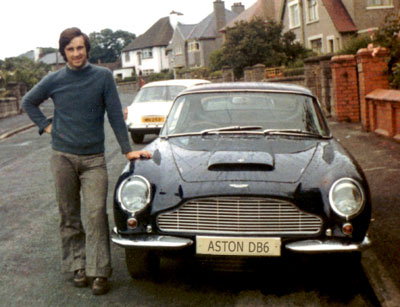Does Your Money Say Spend Me?
Here are some tips on making the most of your money.

Have you ever noticed when you get some money in your pocket that it seems to have a mind of its own? “Spend me,” it whispers.
And when you enter a store, the voice always gets louder. “Spend me!”
It’s power of suggestion is so strong, the obedient shopper often heeds the command. Only when he gets home does the financially drained buyer realize that he is the proud owner of a something he didn’t really want- a new addition to a closet overflowing with unwanted purchases.
Millions of teens (and adults) around the world have a difficult time keeping track of money. It goes so fast. But so often, what we buy isn’t really satisfying.
How about you? Are you happy with the way you spend your money? Do you wish you had a little more to show for your hard work than unwanted items and an empty wallet? There IS a solution.
It’s called budgeting.
Budgeting is simply dividing your money up in advance between the various things you want to save it for or spend it on. But before we see how a budget can help you, let’s take a look at a situation in which many teenagers find themselves.
Mark, 16, makes about $35 a week between odd jobs and allowance. The problem is that he never seems to have any money. Let’s see why.
To begin with, Mark is an impulse buyer. He sees cd’s on sale and he buys one. How about a movie? Which one? Mark doesn’t care. Well, you get the idea.
Mark’s problem is that most of the time, his impulsive buying habits leave him feeling empty and broke. He never has the money to buy what he really wants.
On the other hand, David, 15, always manages to buy most of the things he really wants and still have money for entertainment.
David makes about $30 a week between a part-time job and his allowance. Early in life, David’s parents impressed on him the importance of budgeting his money. So, after every paycheck and allowance day, he divides up his money into various parts: weekly entertainment – $10, savings for a new 10-speed – $6, savings for gifts and special occasions – $4, college fund – $4, vacation fund – $3 and $3 to give to his church.
So far, David’s budgeting habits have paid off. He takes time to plan his entertainment so he does what he really wants to do. In addition, David’s savings program has served him well. Since he started saving $6 a week for his bicycle about five months ago he has put away $120. In five more weeks he’ll be able to buy a brand new 10-speed.
Knowing how much he has to spend on entertainment allows David to pick and choose his leisure activities wisely. And his saving program allows him to plan long-range for more expensive items.
Sure, budgeting takes discipline. It’s hard to stick to a budget, but it does have its rewards.
Budgeting gives you the confidence and security of knowing how much money you can spend and how much you need to save. You’ll be in control of your money – rather than the other way around. You’ll reduce your impulse buying and stop filling your room with things you don’t really want. Instead, you’ll have something to show for your hard work.
Wise spending habits will enable you to develop a good savings program. If you’re serious about saving, get your parents to take you to a bank. Let a bank official explain the requirements for opening a savings account and the various types of accounts available. It will be well worth your while.
But altering a life-style isn’t easy, and that’s what budgeting means. However, if you want to get out of your rut of always being broke and dissatisfied, try a budget.
Sit down with your parents when you are still young and determine your wants and needs, draw up a realistic budget accordingly. If you do, a few years later, you may hear a voice in a store, it may be the manager thanking you after you’ve budgeted for and bought your first new car!
Dan Taylor ‘Youth’
In accordance with Sec 107 of Chapter 1 of Title 17 of US Copyright Law, this material is distributed without
charge or other commercial interest for the purposes of comment, teaching, scholarship and review.
U.S. British Future, P.O. Box 4877, Oceanside, Ca. 92052. U.S.A.
AmericaAndBritainsFuture.com also US-BritishFuture.com